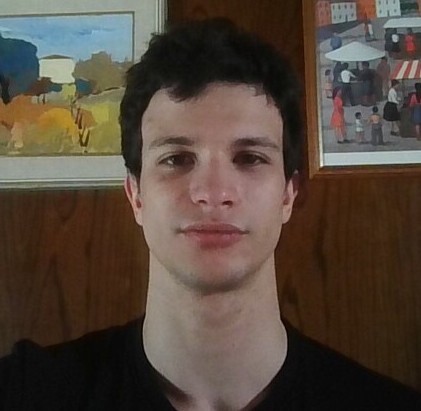This February four of our students will discuss their MA and BA theses, written under the supervision of the professors from the LUCI lab. Check out their abstracts!

Morphogenesis – Complex Systems Modeling within the Debate on the Structure of Evolutionary Theory
MA thesis by Elena Bastia
The rise of complexity sciences has shed light on the possibility of expanding our ways of describing the natural world. The ability to perform computer simulations of multi-agent systems has renewed the interest in emergent behaviors and their role in structuring the evolving biosphere. In this dissertation I analyze the work of the American theoretical biologist Stuart Kauffman, who proposed using such modeling technique as a first step towards an ideal mechanics of complex systems, aimed at playing a complementary role to natural selection in the theory of natural evolution. Computer simulations of simple auto-organizing systems are provided, and their results are interpreted in light of recent proposals of multi-level selection theory.

Direct Inference and the Problem of Gerrymandered Reference Classes
MA thesis by Tobia Fogarin
Direct inference is an inference from information about frequencies or proportions to the credence that is rational to have in a particular proposition. Different rules for direct inference have been proposed. In my dissertation, I discuss Kyburg and Teng’s system of rules for direct inference and Thorn’s system. I compare Kyburg and Teng’s system and Thorn’s system in terms of their efficacy in addressing the problem of gerrymandered reference and target classes: it is possible to define classes of objects in such a way that information about the proportion of objects with a certain characteristic in these classes can be used to draw intuitively wrong conclusions by direct inference. I argue that, from the descriptions of the problem given in the reviewed literature, it is not clear why conclusions drawn from premises concerning certain classes seem intuitively wrong. Part of a solution to this problem must be to explain why certain classes are inappropriate for direct inference. I then argue that Kyburg and Teng’s attempt to solve the problem is insufficient to distinguish which classes are inappropriate for direct inference. I also argue that Thorn’s solution, while able to distinguish between intuitively appropriate and inappropriate classes in known examples of direct inference, fails to explain why the conclusions derived from premises concerning some classes should be wrong.

Evidence and Proof, a Study of Phenomenology and Intuitionism
MA thesis by Edoardo Menorello
This dissertation deals with the relationship between Phenomenology and the intuitionistic philosophy of mathematics. In particular, we investigate the relation between the notion of evidence (of Husserlian inheritance) and proof (from the intuitionistic tradition instead). We aim to establish in which sense and with what limitations Husserl’s threefold notion of evidence could function as proof in the sense of intuitionism. The same study also clarifies the relationship between the different kinds of evidence named “distinctness” and “grammaticality” with “clarity”, and between consequence-logic and pure logical grammar with truth-logic. This is a central topic in the understanding Husserl’s idea of a “theory of judgment”, yet one whose analytical treatment has seldom been undertaken in the literature. We defend that the concepts of clarity and proof are functionally equivalent and that both distinctness and grammaticality are not devoid of truth-logical value, for they are not syntactically identical but equivalent to special cases of clarity. A distinct (or grammatical) proposition thus counts as proof of a judgment, albeit not of the judgment expressing the same proposition offered in distinctness or grammaticality. At last, we propose a translation from distinct (or grammatical) propositions into their corresponding truth-logical value. This work has been made possible by the caring supervision of Professor Mirja Hartimo at the University of Helsinki.

Bias in AI Recruiting
BA thesis by Davide Giuseppe Leonardi
AI recruiting tools are automation tools that can reduce the duration of the hiring pipeline, address DEI (diversity, equity, and inclusion) goals, and handle high numbers of applications.
The limitation of this techno-solutionist approach is that it does not address substantive concerns such as power asymmetries, workplace harassment, unequal salaries, and the leaky pipeline problem. Moreover, AI’s ability to infer candidate’s personality dimensions from the body language detected during one-way recorded interviews does not take into account an important acquisition of cultural anthropology. Culture is contingent. Ergo, body language, as a cultural product, is also contingent.
The main problem with AI recruiting tools remains the numerous examples of discriminatory algorithmic decisions. So, an important question arises. Having proved that machine learning models do not implement any property specification, but are themselves specifications, which approaches can we take to make our models fair?
One possible answer is to treat the training datasets so that they satisfy one of the fairness metrics developed by the research. But this is not enough. We have to test the machine learning software thus to assess if a certain trade-off between fairness and accuracy is met.